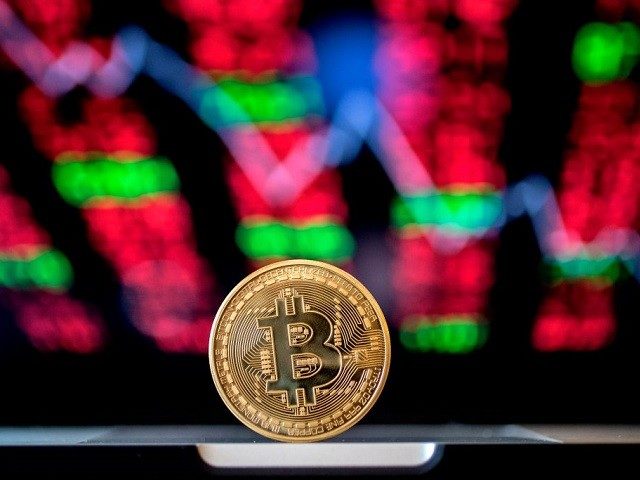CARACAS, Venezuela — The president of El Salvador, Nayib Bukele, announced on Monday that his nation had spent $15.3 million to purchase an additional 500 Bitcoins to add to the nation’s cryptocurrency reserves.
The move comes amidst another steep crash in Bitcoin’s value and warnings from international organizations of a tangible risk of a default in the Central American nation.
El Salvador just bought the dip! 🇸🇻
500 coins at an average USD price of ~$30,744 #Bitcoin
— Nayib Bukele (@nayibbukele) May 9, 2022
Bukele “bought the dip” (purchasing an asset after it has dropped in price) just after the cryptocurrency suffered another crash, losing 50 percent of its historic peak value in the span of five days. It is estimated that El Salvador holds approximately 2,301 bitcoins in its reserves.
Bloomberg estimates that Bukele’s bitcoin losses swelled to 28 percent, as the bitcoins El Salvador spent $103 million purchasing are now worth $74 million.
El Salvador ditched its national currency, the Salvadoran colón, in 2001, adopting the United States dollar as the nation’s legal tender to overcome the nation’s inflation problems at the time. Seeking to depend less on the U.S. greenback and on organizations such as the International Monetary Fund (IMF), El Salvador officially adopted Bitcoin as the country’s second legal tender in September 2021. The move was not unanimously welcomed by the nation’s citizens, with thousands protesting against the introduction of Bitcoin as legal tender.
To incentivize the use of the nation’s Bitcoin wallet platform, Chivo (a Salvadoran slang term for “cool”), Bukele offered a one-time $30 stipend in Bitcoins to Salvadoran citizens who signed up and opened an account on the Chivo platform.
El Salvador’s “Bitcoin Law” forces any Salvadoran commercial establishment to accept Bitcoin payments. Internet access, an indispensable requirement for the use of cryptocurrencies, is one of the main obstacles in El Salvador. The World Bank estimated at the time that by 2020, only 55 percent of the country’s 6.4 million citizens had internet access. One month after the law went into effect, there were more Salvadorans with a Bitcoin wallet than with bank accounts, with three million sign-ups during its first month. ATMs have been installed throughout the country that allow citizens to exchange Bitcoin and U.S. dollars.
Since then, President Bukele has doubled down on his advocacy of Bitcoin, including ambitious plans for a “Bitcoin City” — an entire income- and capital-gains-tax-free jurisdiction using the thermal energy of the Conchagua volcano to power the zone’s bitcoin mining operations.
#Bitcoin City is coming along beautifully ❤️ pic.twitter.com/A6ay8aAREW
— Nayib Bukele (@nayibbukele) May 9, 2022
Bukele intends to finance the creation of “Bitcoin City” through the sale of the nation’s debt via a $1 billion “Volcano Bond” backed by Bitcoin. El Salvador’s government keeps its Bitcoin holdings data under wraps, including a confidential $150 million fund handled by the state’s Bandesal bank to back the nation’s U.S. dollar-Bitcoin exchange transactions.
El Salvador’s Bitcoin gamble has drawn the continued criticism of international organizations, who have warned of a potential imminent default. Last week, Moody’s Corporation downgraded El Salvador’s credit rating to “Caa3,” issuing a warning to investors of a serious possibility of a credit event occurring in the country. The International Monetary Fund has deemed El Salvador to be on an “unsustainable path.”
Bukele has recently responded to criticism through his Twitter account by quoting his approval rating.
It’s funny listening to “experts” analyzing El Salvador, when they know exactly nothing about El Salvador.
In fact, according to GALLUP:
85% approval rating
91% approval of security measures
97% approves the handling of the pandemicWhat’s your President’s approval rating? https://t.co/CTZu4KhXy8
— Nayib Bukele (@nayibbukele) May 12, 2022
Bukele has also scolded U.S. senators who have pushed for the “Accountability for Cryptocurrency in El Salvador (ACES) Act,” legislation that would label the Central American nation as a “risk to the U.S. financial system.”
Like other cryptocurrencies, Bitcoin is a highly volatile market and generally requires a degree of tech savvy to properly use, but in spite of Bitcoin’s volatility and all of the risks it entails, it remains a valuable asset for many citizens across all parts of the world against inflation. It is also a pathway to send and receive remittances from abroad and to access online services when there is no access to more “mainstream” American payment processors.
Venezuela is an example case, where hyperinflation — which reached more than one million percent in 2018 — left the country with a functionally dead currency, made worse by the fact that having foreign currency was illegal until 2018. It is also an alternative way to save funds in places where access to foreign currency bank accounts is an uphill endeavor for the average citizen or where currency control exchange laws prevent one from accessing the international banking systems.
During the worst days of the socialist collapse of Venezuela, Bitcoin and other cryptocurrencies became a lifeline to many. Cryptocurrencies have been used to bypass the socialist regime’s scrutiny — having saved yours truly a few times so far.
The socialist regime, however, has a cryptocurrency of their own, the petro, deemed a scam by the United States and having practically no use for Venezuelans beyond complicating their lives, as the regime uses the petro to set tariffs and fees without directly having to reference them in United States dollars due to ideological reasons.
Christian K. Caruzo is a Venezuelan writer and documents life under socialism. You can follow him on Twitter here.

COMMENTS
Please let us know if you're having issues with commenting.